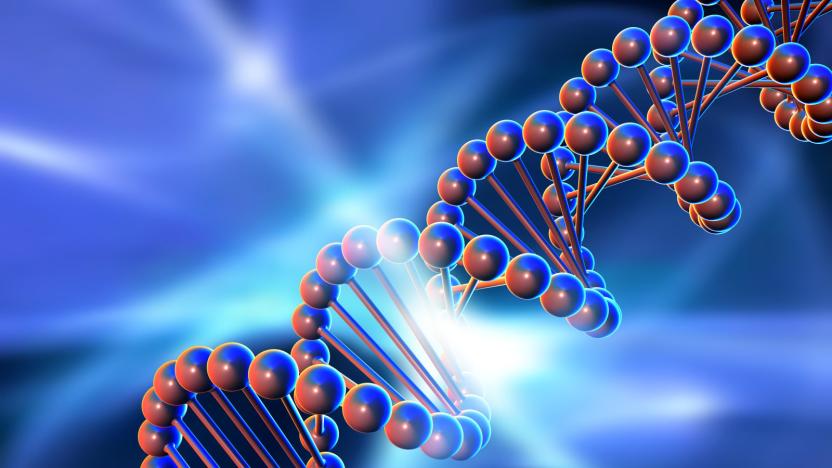DnaComputing
Latest

Scientists prove it's possible to build a DNA computer
Scientists at the University of Manchester, led by Professor Ross D. King, have created a new DNA-based computing device. If you think of DNA as being the code for generating life, then it's not hard to see it as capable of performing other tasks. Just as the four key proteins of DNA can be combined to tell white blood cells to attack infections or grow hair, they could also theoretically be used to analyze massive amounts of climate data... or you know, render a disturbingly realistic Nazi to shoot in the face.

DNA computer solves logical problems, inches closer to practical use
The world of biomolecular computing is hardly a lonely place: bacteria, enzymes, and all manner of chemicals have already been used to perform basic automated tasks. DNA computers are arguably the most advanced organic form of "autonomous programmable computing devices," with one already boasting a pretty tight game of Tic-Tac-Toe. The latest, put together by the Israeli Weizmann Institute, advances things with its ability to correctly respond to problems of logic. By feeding molecular rules and facts into the system, the researchers are able to program DNA strands to produce yes and no answers to basic questions. Programming is said to be technically identical to that used in electronic devices, with a robot compiler converting the programming language into molecular-level information. The ultimate aim of the project is to produce miniscule disease-fighting bots that can battle infections within the human body -- provided the DNA-programming drones don't go all Yul Brynner on us.[Thanks, Karl]

Meet MAYA-II, the new DNA computer that can play Tic-Tac-Toe
While strands of DNA may be able to pick fights with other strands, one thing that they can't do yet is play computer games -- that is, until now. In what appears to be an early proof-of-concept for DNA computing, scientists at Columbia University and the University of New Mexico have created a basic computer, called the MAYA-II, which has a molecular array of YES and AND logic gates made up of 100 DNA circuits. This allows the MAYA-II to play a complete game of Tic-Tac-Toe against a human opponent, and apparently nearly always win. However, this isn't exactly a fair test, given that the MAYA-II always goes first, and always opens with the center square. Still, even though each move takes 30 minutes to complete, the lead researcher on the project, Dr. Joanna Macdonald of Columbia, says that a DNA computer would be perfect for injection into human subjects to combat disease, because in theory, it would be able to "diagnose and kill cancerous cells or monitor and treat diabetes by dispensing insulin when needed." Useful applications aside, we're ready to take on the MAYA-II in Connect Four whenever Dr. Macdonald thinks it's ready.[Via MedGadget]
